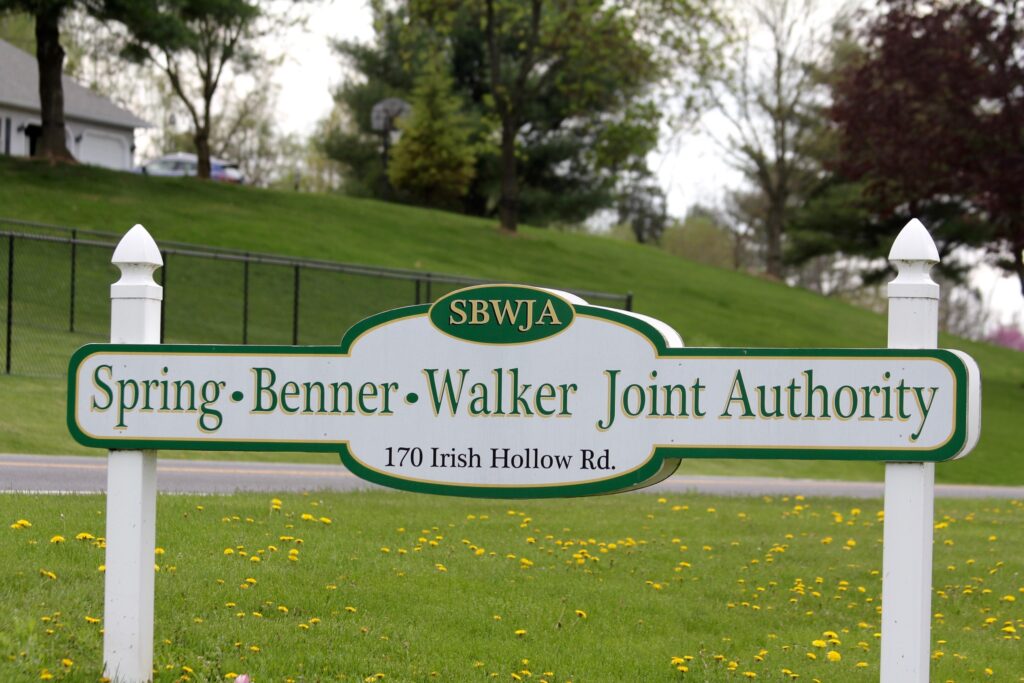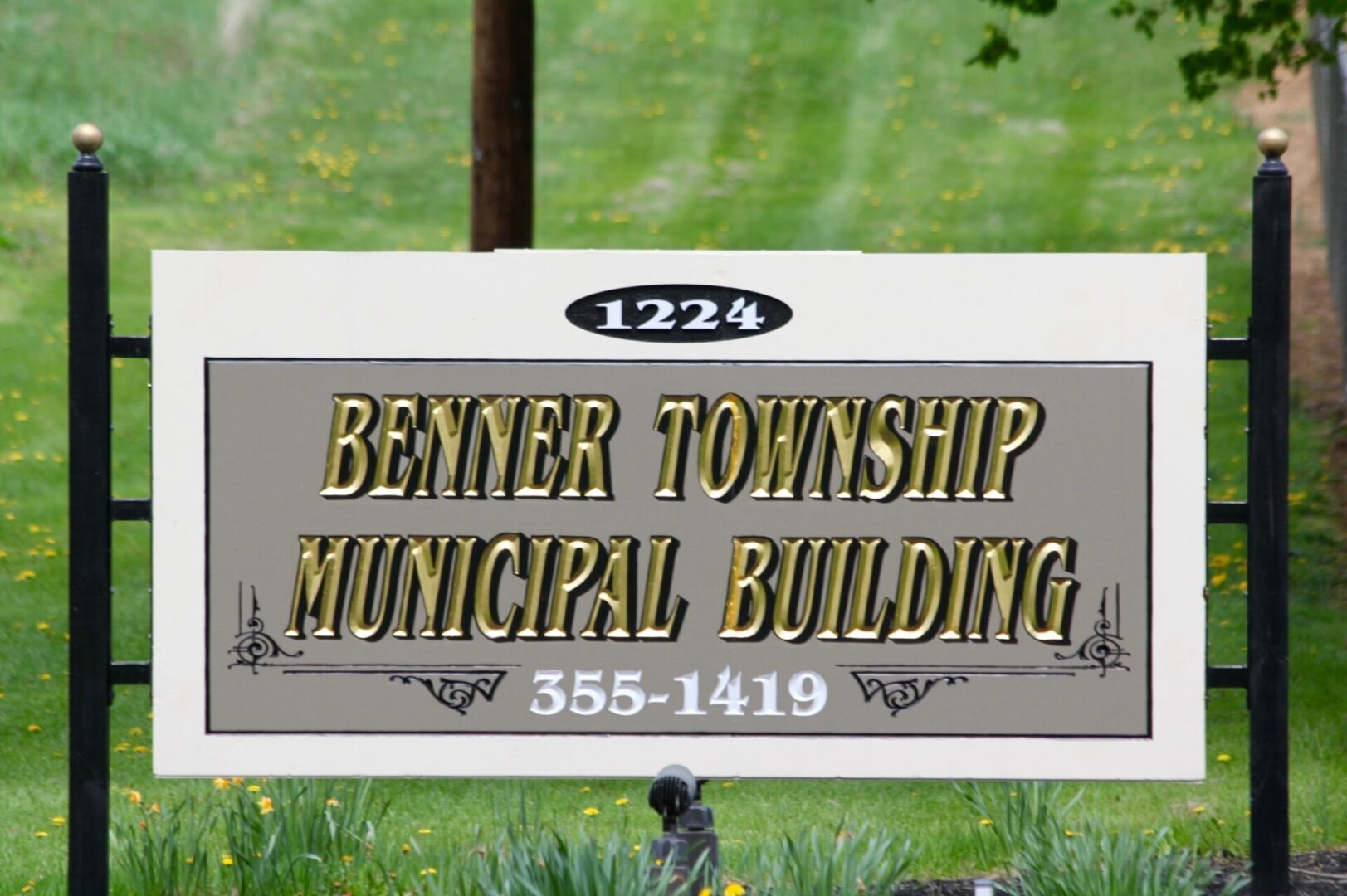Benner Township’s Board of Supervisors last week dissolved the township’s water authority in a move that will turn the system over to its operator of nearly two decades.
The 2-1 vote on Sept. 2, with Supervisor Kathy Evey voting no, sets up the transfer of ownership of the system to the Spring Benner Walker Joint Authority, which has handled its operations and billing on a contract basis for 18 years.
The supervisors previously approved in August (also with Evey voting no) a memorandum of understanding to transfer the system assets and operations to SBWJA if and when the Benner Township Water Authority was dissolved. SBWJA approved the MOU in July by a 5-2 vote, with one abstention and one absence.
Supervisors Randy Moyer and Larry Lingle said the transfer will maintain continuity for the system’s more than 260 customers representing about 800 residents in Opequon, Hampton Hills, Grove Park and Peru. They also said they had few, if any, choices after SBWJA informed the township earlier this year it was no longer comfortable being under contract with the BTWA and would be terminating their agreement.
The BTWA was essentially a board of appointed volunteers that provided oversight, but had no staff or capacity to operate the system itself. Though it did not want to be under contract with the township, SBWJA later agreed it would take on ownership of the system.
“It is illegal for the Benner Township Water Authority to operate without a licensed operator,” township solicitor Rodney Beard said. “So they either have to find a solution for that problem or they need to be dissolved. The township has worked pretty hard to figure out how to make this work so that the current customers will continue to have licensed operators provide good quality, safe water.”
Evey and other opponents of the move argued the system should remain fully under the control of Benner Township, which has three of the nine members on the SBWJA board, and that an option for another contracted operator was not fully considered.
The BTWA had about $1.5 million in assets, nearly 80% of which were property assets, at the end of 2024, according to its most recent audit. It’s one of four municipal systems serving the township, while many properties have private wells instead of public water.
SBWJA — which also serves as the municipal sewage authority for its three member townships — has managed the system since 2007. But in a January letter previously obtained by StateCollege.com through an open-records request, executive director N. Warren Miller notified the BTWA that the SBWJA board had decided to end the long-standing relationship “to protect the Authority and its customers.”
Miller cited issues with the BTWA board at the time (three members resigned this summer), which he wrote had “become fragmented” as “some members continue to follow their own personal agendas without open and public exposure to their intent of goals.”
He also pointed to litigation involving the township supervisors, in which Evey accused Moyer and Lingle of violating the state’s Sunshine Law.
“We do not wish to be associated with this type of leadership nor do we wish to be drug into litigation simply to satisfy any individual’s quest for power or recognition,” Miller wrote.
The BTWA issued a request for proposals from other municipal authorities to serve as system operator but received no takers, according to an April letter from then-BTWA board chair Jerrold May, as previously reported by StateCollege.com. As a “last resort” the BTWA invited the privately-owned Pennsylvania American Water to survey the system and determine if it was interested in acquiring it.
It’s unclear whether Pennsylvania American had interest, but none of the township supervisors, who would have to approve it, showed an appetite for a sale to a private utility. Moyer and Evey both told StateCollege.com earlier this year they would oppose such a sale, and Lingle said last week that the supervisors priorities were to keep water available and affordable for existing customers.
“We can go out and sell it, and they can triple or quadruple the price of what they’re paying for water,” Lingle said. “We don’t want that to happen. We want it to be reasonable. I mean, I think that’s common sense.”

The BTWA did receive a proposal from the privately-owned, Altoona-based Source to Tap LLC to operate the system for $52,000 a year, but the company would not provide billing and customer service, according to the draft contract obtained by StateCollege.com. BTWA has paid SBWJA about $60,000 annually for operations, billing and customer service.
Evey said during a discussion at the July supervisors meeting she believed management of billing was a “minor issue” that could be solved. Longtime BTWA board member Tom Eby said a majority of other members showed no interest in considering the proposal.
“They had a proposal to present to them and all that happened was a little couple second discussion at the water authority meeting,” Evey said. “That company came into the water authority meeting with the proposal in hand. There was no meeting separately with them to even begin to discuss it, using the pitiful excuse that they didn’t have an administrator to do the billing.”
During a discussion at the supervisors’ meeting in July, Evey said the current BTWA should be given an opportunity to find a contractor, and that “maybe it’s not in the best hands or the best direction” with SBWJA.
Moyer, though, asked Evey why she wanted “to reinvent the wheel.”
“Why do you want to not have the people that have run it for over 18 years, that have the capability to run it?” Moyer said. “They have the billing. They send it out with their sewer bills. It doesn’t cost hardly anything. They run it for about $5,000 a month is what they charge the water authority to operate this system… You’re not gonna find anybody that can maintenance, have the crew 24 hours on hand, and they’ve done it for 18 years. They know where the lines are. They’re the reason that you have water, when the power went out for a week here, because they’re the ones that install generators.”
Evey and several residents also voiced concerns that the transfer could forestall efforts to bring public water service to homes with private wells affected by contamination near State College Regional Airport.
Penn State, which owns the airport and is identified as a “responsible person” in a pending consent order for the contamination cleanup, confirmed in February that it was in the initial stages of talks with the BTWA and others about connecting the approximately 40 affected homes in the Walnut Grove Estates neighborhood to a municipal water service. The nearby State College Water Authority conducted a feasibility study, but no utility provider has to date been identified.
“What you’ve given me is that there’s a dissolution of the water authority, there’s a known field of contamination in the township, and there’s no solution to bringing them clean water based upon a feasibility study that was not commissioned by Benner Township,” Christine Line, an attorney representing Walnut Grove residents, said at the Sept. 2 meeting
Lingle, though, said Line was “interconnecting two different issues” and Moyer said the action to dissolve the authority was about maintaining service for current BTWA customers.
“That’s what we’re saving here tonight,” Moyer said. “We’re saving the current customers, not future customers. I can’t answer future. I don’t know if they’ll get [public] water over [in Walnut Grove] or not. That’s not what this is about tonight. This is about the current customers and saving that water system.”



